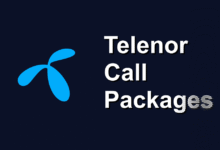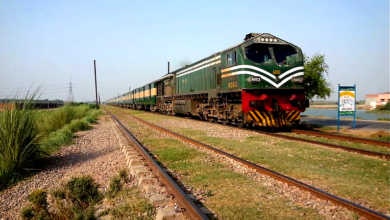Startup or Freelancing: What’s Better in Pakistan’s Economy?
Startup or freelancing in Pakistan? Compare pros, cons & earning potential to choose the best career path in Pakistan's digital economy.

Pakistan’s economy is evolving rapidly, with digital opportunities reshaping traditional career paths. Startup or Freelancing have emerged as two dominant avenues for professionals and entrepreneurs. While startups offer scalability and long-term growth, freelancing provides flexibility and immediate income. Choosing between the Startup or Freelancing depends on factors like financial stability, risk appetite, and market demand. This explores the pros, cons, and economic viability of both Startup or Freelancing options in Pakistan’s current landscape.
The debate between Startup or Freelancing is crucial for young professionals, students, and seasoned experts. With rising unemployment and inflation, many seek alternative income streams. Freelancers enjoy independence, while startup founders aim for business expansion. Understanding the economic challenges, government policies, and success stories will help individuals make informed decisions.
Startup or Freelancing
Understanding the Pakistani Economic Landscape
Pakistan’s economy faces challenges like inflation, currency devaluation, and unemployment. However, the IT sector and digital entrepreneurship are thriving. The government supports freelancers and startups through policies like the Freelancer Facilitation Initiative and Startup Pakistan Program. These initiatives provide tax exemptions, funding, and training to boost digital earnings. The rise of e-commerce and remote work has created opportunities for Startup or Freelancing models. Freelancers benefit from global clients, while startups tap into local and international markets.
What is Freelancing? Pros and Cons in Pakistan
Pros of Freelancing
Freelancing offers instant income potential, allowing skilled professionals to start earning immediately without the lengthy setup required by startups. It provides unmatched flexibility you choose your projects, clients, and work hours while operating from anywhere with an internet connection. With minimal startup costs (just a laptop and internet), freelancers avoid the financial risks and debt burdens that plague many startups.
Cons of Freelancing
Freelancing comes with unstable income streams, as earnings fluctuate based on project availability and client payments, making financial planning challenging. The fierce global competition on platforms like Upwork and Fiverr drives down rates, forcing freelancers to constantly upskill while facing pressure from lower-cost international workers. Unlike startups, freelancing offers no scalability your income is capped by the hours you can physically work, with no asset-building potential.
What is a Startup? Pros and Cons in Pakistan
Pros of Startups
Launching a startup offers unlimited growth potential, allowing entrepreneurs to scale from a local operation to a global enterprise with the right strategy and funding. Unlike freelancing, startups create valuable business assets brand equity, Intellectual property, and customer bases that can be sold or attract investors. They contribute to economic development by generating employment and fostering innovation, particularly in Pakistan’s emerging tech sectors like fintech, e-commerce, and agritech.
Cons of Startups
Launching a startup involves significant financial risk, with most failing within the first few years due to cash flow issues, market competition, or poor execution. Unlike freelancing, startups require substantial upfront investment for product development, hiring, marketing, and operational costs, often forcing founders to bootstrap or take on debt. The long path to profitability means enduring months or years without steady income, creating personal financial strain.
Financial Comparison
Initial Investment Requirements
Freelancing requires minimal startup costs – just a reliable computer, internet connection, and basic software tools (typically under PKR 100,000). Startups demand significantly higher capital, ranging from PKR 500,000 for basic e-commerce ventures to millions for tech startups needing product development, licensing, and staffing. Many Pakistani freelancers begin with existing home equipment, while startups often require external funding through savings, loans, or investors.
Cash Flow and Financial Stability
Freelancers experience irregular cash flow, often facing payment delays or project droughts, especially when starting. Startups typically have negative cash flow for 6-24 months before breaking even. However, established startups develop more predictable revenue streams through subscriptions or repeat customers.
Operational Costs and Overheads
Freelancing maintains low fixed costs (internet, software subscriptions), typically under PKR 20,000 monthly. Startups incur substantial recurring expenses – office space (PKR 50,000+), salaries (PKR 150,000+ for small team), marketing, and compliance costs. Many Pakistani freelancers operate from home, while startups require formal business registration (SECP), accounting services, and often import duties for equipment.
Taxation and Financial Compliance
Freelancers earning above PKR 600,000 annually must file income tax returns (15-25% rates), often overlooked in Pakistan’s informal economy. Startups face complex taxation – corporate tax (29%), sales tax (17%), and withholding taxes, but benefit from various exemptions under government initiatives like the Startup Pakistan Program.
Exit Strategies and Long-Term Value
Freelancers build client lists and reputations that can be monetized by selling their practice or transitioning to agencies. Startups create transferable assets – intellectual property, customer bases, and brands that attract acquisitions (e.g., Digikul’s acquisition by UAE firm). In Pakistan’s market, established startups command 3-5x revenue multiples, while freelance businesses typically sell for 1-2x annual earnings due to personal dependency.
Market Demand and Future Trends
The demand for freelancers in IT, content creation, and AI services is rising globally. Pakistan’s youth is leveraging this trend to earn foreign exchange. Meanwhile, startups in fintech, agritech, and healthtech are attracting venture capital. The State Bank of Pakistan and PTA are improving digital infrastructure, benefiting both Startup or Freelancing. The future favors those who adapt to remote work, automation, and digital entrepreneurship.
Which is Better for You?
Freelancing is Flexible Income Generator
Freelancing shines as the ideal path for those seeking immediate income without major financial commitments. This model works exceptionally well for professionals with marketable skills like graphic design, content writing, or programming who want to maintain control over their work schedule. The ability to work with international clients and earn in dollars provides a significant advantage in Pakistan’s economy, especially given the favorable exchange rates.
Startups is High-Risk, High-Reward Venture
Launching a startup represents the entrepreneurial dream, offering unlimited growth potential for those with innovative ideas and sufficient capital. Successful startups can transform into valuable assets, create employment opportunities, and potentially revolutionize industries. In Pakistan’s emerging digital economy, sectors like fintech, e-commerce, and edtech present particularly promising opportunities.
Assessing Your Situation
Your ideal path of Startup or Freelancing depends on several personal factors including your financial situation, risk tolerance, skillset, and long-term goals. Those with dependents or limited savings might prefer freelancing’s immediate income, while individuals with strong support systems and innovative ideas may thrive in the startup world. Consider your personality too freelancing suits independent self-starters.
Future-Proofing Your Career
Regardless of which path you choose both in Startup or Freelancing, continuous skill development and market awareness are crucial for long-term success. Freelancers should focus on specializing in high-demand areas and building personal brands, while startup founders need to stay agile and responsive to market changes. In Pakistan’s rapidly evolving digital economy, professionals who combine technical skills with business acumen will find the most opportunities.
Read More: What Is Internet of Things? A Beginner’s Guide for Pakistanis
Conclusion
Startup or Freelancing in Pakistan presents two distinct paths to financial success, each with its own merits and challenges. For those seeking immediate income with minimal risk, freelancing offers flexibility and the advantage of earning in foreign currency. On the other hand, startups provide the potential for long-term wealth creation and economic impact, though they demand significant investment and resilience. The choice ultimately depends on an individual’s financial goals, risk tolerance, and commitment to either independent work or entrepreneurial ventures.
As Pakistan’s digital economy continues to grow, both Startup or Freelancing will play crucial roles in shaping the country’s employment landscape. Freelancers contribute to foreign exchange reserves, while startups drive innovation and job creation. For many, starting as a freelancer and gradually transitioning into a startup may be the most practical approach. Regardless of the path chosen Startup or Freelancing, success in Pakistan’s economy will depend on adaptability, continuous skill development, and a strategic understanding of market demands.
FAQs
Which earns more Startup or Freelancing?
Freelancing offers quicker but limited earnings, while startups have higher income potential but require time and investment to scale.
Can I start freelancing with no experience?
Yes, beginners can start with basic skills (content writing, graphic design) and build expertise through online courses and practice.
Do startups need government approval in Pakistan?
Registration with SECP is required for formal startups, but freelancers typically don’t need approvals for individual work.
Is freelancing safer than a startup?
Freelancing has lower financial risk, while startups involve higher stakes but greater long-term rewards.
Can I do both Startup or Freelancing together?
Yes, many freelancers use their income to fund startups, balancing immediate earnings with long-term business growth.











